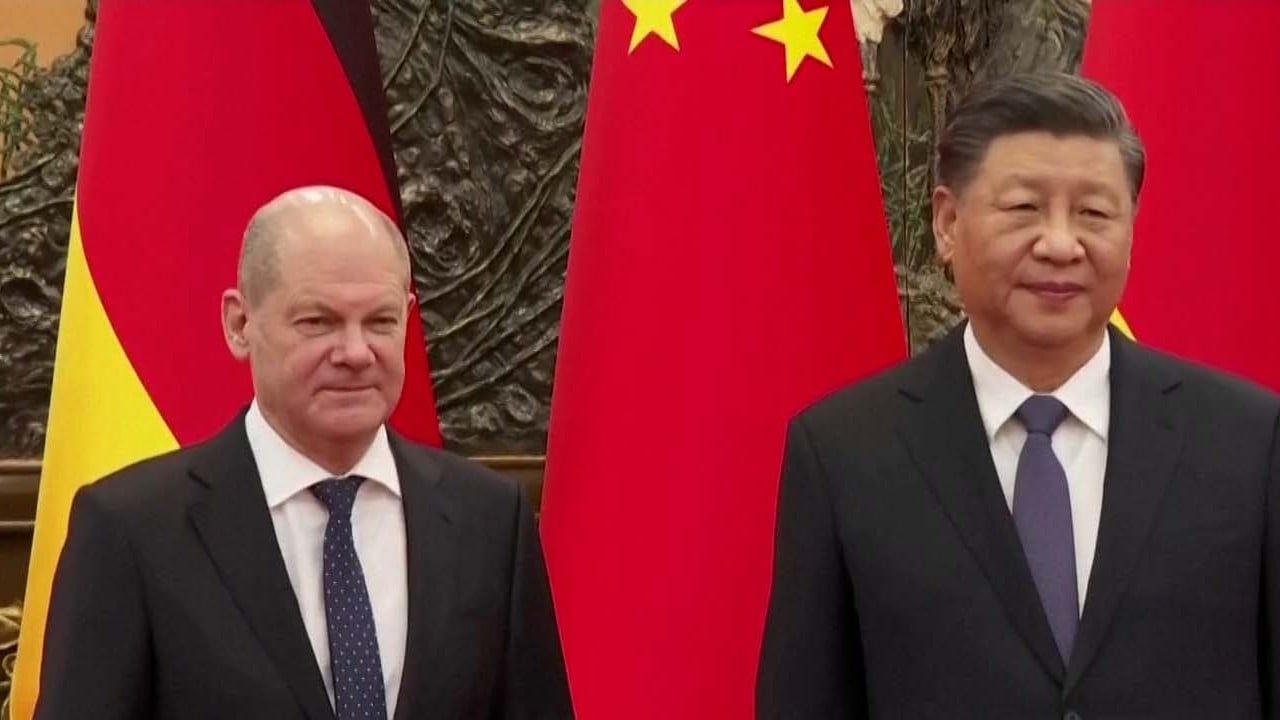
German ambassador to China warns of ‘further disruptions here’ as infections surge to previously ‘unimaginable’ levels
- In poll of nearly 600 German businesses, 87 per cent said they were affected by rising decoupling tendencies between China and the United States
- And only 51 per cent said they were planning on increasing their investments in China over the coming two years – a big drop from the annual average of about 70 per cent
German firms in China are bracing for disruptions from surging Covid infections after the Chinese government’s decision to ease its zero-Covid policy, according to the head of the German Chamber of Commerce in China.
While there have not been closures, infections have been on the rise, especially in the north of China, and to a certain extent in the south, said Clas Neumann, chairman of the chamber.
“We hope … there will be no further lockdowns [and] we hope, of course, that we can find a way to work together here with the authorities,” Neumann said at an event on Thursday about the annual business sentiment survey.
Beijing permits German residents in China to use BioNTech’s mRNA vaccine
“We have numbers of infections unimaginable before – they are hitting a population that is still lacking vaccinations,” said Flor, who was also a speaker at the event. “We don’t know, are there enough intensive care unit (ICU) beds?
“Nobody is really prepared, mentally, for this situation. So we cannot be excluded. There will be further disruptions here.”
The latest business-sentiment survey by the German Chamber of Commerce in China found that, over the past three years, China’s zero-Covid policy has fuelled diversification away from the country, as well as more localisation within it.
Geopolitical tensions put additional pressure on German companies and are causing decision-makers to re-evaluate their engagement in China
“Geopolitical tensions put additional pressure on German companies and are causing decision-makers to re-evaluate their engagement in China,” said Neumann.
He also said that China’s U-turn in its coronavirus policy since last month is shaping up to be “a game changer”, and that German firms will be looking to quickly adjust their operations to overcome an expected surge in infections.
Neumann is also hopeful that international travel restrictions – a key problem for foreign companies – will be removed next year.
German chancellor warns West against isolating China
“In the current scenario, it doesn’t really make sense any more – to lock down people who come from abroad … if you also have this huge number of Covid-positive cases locally. So, I think it should be adjusted,” Neumann said.
The survey, released on Thursday, was taken between August 23 and September 21 – before China announced a relaxation in its zero-Covid policy that has mandated lockdowns, mass screening and quarantines during the pandemic.
Confidence among the 593 polled German firms declined significantly when it came to doing business in China. Only 51 per cent said they intended to increase their investments in China in the next two years, compared with 71 per cent last year.
“This marks a drop of around 20 percentage points from surveys of recent years, which historically report investment intentions at around 70 per cent,” the report said.
Overall, German companies said they were localising operations and supply chains inside China, diversifying in Southeast Asia, or simultaneously doing both. But building up parallel structures and diversifying outside of China is posing a bigger obstacle to smaller companies, the report said.
Nearly one-fifth of the respondents would prefer to localise their Asia-Pacific headquarters or regional headquarters in China. But a similar percentage, 18 per cent, were diversifying their regional headquarters outside of China.
German economic official heads to Taiwan as Berlin looks beyond Beijing
“Despite all odds and challenges, China remains unrivalled in terms of market size and market-growth opportunities for many German companies,” Neumann said. “The large majority will stay committed to the Chinese market.”
Legal uncertainties, internet-access restrictions and cyber regulations were rated in the survey as the main regulatory business challenges in China.
China has added laws on data security, personal-data protection and cross-border data transfers. The changes have affected how companies in China operate and especially how they handle data such as user information.
Preferential treatment of Chinese competitors is still an issue for nearly a third of German companies. And two-thirds of them pointed to the favourable treatment of domestic companies in terms of market access.
Policy initiatives such as “Made in China 2025” (MIC2025) and the country’s pursuit of self-reliance give local competitors an edge, resulting in 29 per cent of German companies reporting unfavourable treatment, the survey said.
The controversial MIC2025 strategy aims to guide the country’s industrial modernisation, including by substituting foreign technology with home-grown innovation.
Although 45 per cent of the polled companies said they expected a decline in industrial development this year, some German firms expressed optimism for 2023. A total of 38 per cent were expecting to see positive developments in their industries over the coming year.
Half were expecting an increase in business turnover, and 37 per cent predicted higher profits. And 77 per cent of German companies in China expected annual growth to continue increasing in their industries for the next five years.


